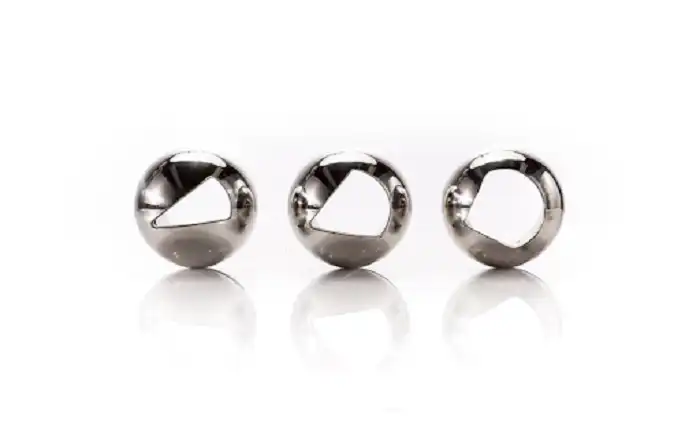What are V-Port Ball Valves? An Introduction to Their Design and Function

Industrial ball valves are crucial components used in various applications to control the flow of fluids. One specific type of ball valve gaining popularity is the V-port ball valve, also known as a v ball control valve. In this article, we will explore V-port ball valves, including their design, function, and applications. Whether you’re looking for information as an industry professional or seeking industrial ball valves manufacturers, understanding V-port ball valves will provide valuable insights.
Introduction to V-Port Ball Valves
V-port ball valves are a type of ball valve that feature a “V” shaped port or “V-notch” in the ball. Unlike standard full-port or reduced-port ball valves that offer a round or cylindrical opening, V-port ball valves have a precise V-shaped opening. This characteristic allows for more precise control of flow and provides enhanced throttling capabilities.
Design and Construction
The design and construction of V-port ball valves are similar to traditional ball valves but with a modified ball design. The ball within the valve has a V-shaped or notched area carved out, which creates the characteristic V-port. The V-port can have different angles, such as 30°, 60°, or 90°, depending on the desired flow characteristics. The valve body typically has a flanged or threaded connection for easy installation.
Functionality and Flow Control
The unique V-port design of these ball valves allows for precise flow control in applications where modulation or throttling is required. When the ball is in the closed position, the V-port aligns with the valve seat, providing a tight shut-off. As the valve is opened, the V-port allows for a variable opening, enabling accurate flow regulation at different degrees of valve opening. This design provides excellent control over flow rates, offering increased accuracy and repeatability compared to conventional ball valves.
Applications of V-Port Ball Valves
V-port ball valves find applications in a wide range of industries where precise flow control is essential. Some common application areas include:
- Process Control: V-port ball valves are used in industries such as chemical, oil and gas, and power generation for precise flow control in processes such as mixing, blending, and dosing.
- Flow Modulation: These valves are ideal for applications that require flow modulation, such as controlling flow rates in heating and cooling systems, or handling viscous fluids.
- Control Systems: V-port ball valves play a crucial role in control systems, such as those used in HVAC (heating, ventilation, and air conditioning), where precise temperature and flow control are necessary.
- Water Treatment: V-port ball valves are used in water treatment processes to regulate flow rates and control the addition of chemicals or filtration systems.
- Process Skids: V-Port ball valves are commonly used in skid-mounted systems, where compact size and accurate flow control capabilities are required.
Collaborating with Industrial Ball Valves Manufacturers
Collaborating with reputable industrial ball valves manufacturers is essential to access reliable and high-quality V-port ball valves. These manufacturers have expertise in producing precision-engineered valves that meet industry standards and specifications. They offer a variety of materials, sizes, and connection options to cater to different application requirements. Choosing a trusted manufacturer ensures access to durable and efficient V-port ball valves that deliver optimal performance and longevity.
Benefits of V-Port Ball Valves
V-port ball valves offer several advantages, including:
- Precise Flow Control: The V-port design allows for accurate throttling and precise flow control, making them suitable for applications that require high-precision regulation.
- Enhanced Control Range: The V-notch shape provides a wide control range, allowing for precise control over a broader range of flow rates compared to traditional ball valves.
- Lower Pressure Drop: The V-shaped port design minimizes pressure drop across the valve, improving system efficiency and reducing energy consumption.
- Reduced Cavitation and Erosion: The gradual opening and closing action of V-port ball valves help minimize cavitation and erosion, making them suitable for applications with high-velocity flows.
- Longevity and Reliability: Manufactured with high-quality materials, V-port ball valves offer excellent resistance to corrosion, wear, and harsh operating conditions, ensuring long service life and reliability.
Conclusion
V-port ball valves offer precise flow control and enhanced throttling capabilities, making them ideal for various industries that require accurate flow regulation. By collaborating with reputable industrial ball valves manufacturers, businesses can access high-quality V-port ball valves that meet their specific application requirements. Whether it’s for process control, flow modulation, or control systems, these valves provide accurate and reliable flow control, contributing to efficient and optimized operations in numerous industries.




